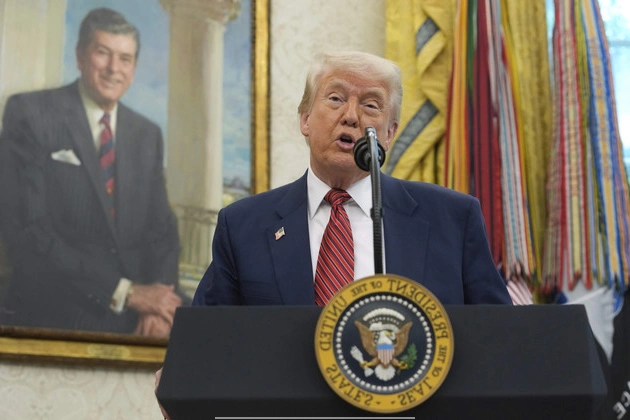
The Trump administration is reportedly considering a review of the tax-exempt status of universities, citing concerns about antisemitism and political bias on campus.
President Donald Trump recently hinted at the possibility of broadening the scope of his revocation threats to include more universities where such issues are perceived to be rampant.
Escalation in Administration’s Approach
This potential move marks a new escalation in the administration’s ongoing scrutiny of higher education institutions. In the past, Trump has targeted elite universities with funding cuts and criticized their diversity, equity, and inclusion policies.
Harvard University, in particular, has been at the center of this conflict. The administration recently announced its intention to revoke Harvard’s tax-exempt status, leading to a contentious back-and-forth between the two parties.
During an interview, President Trump highlighted what he perceives as a lack of ideological diversity at Harvard, pointing out the low representation of conservatives among the faculty.
Challenges and Controversies
The administration’s stance on higher education has sparked debates about free speech, academic freedom, and the role of government in regulating universities.
While the White House has not provided further details on its potential actions regarding tax-exempt status, any such decision would likely face legal challenges and scrutiny.
Democrats have raised concerns about possible political interference in the IRS’s decisions regarding universities, calling for transparency and accountability in the process.
Future Implications
The outcome of this review process could have far-reaching implications for universities across the country. It may impact funding, research grants, and the overall autonomy of academic institutions.
As the debate continues, stakeholders in higher education are closely monitoring developments and preparing for potential changes in the regulatory landscape.
In conclusion, the Trump administration’s consideration of reviewing the tax-exempt status of universities underscores the complex intersection of politics, education, and institutional governance in the United States.











